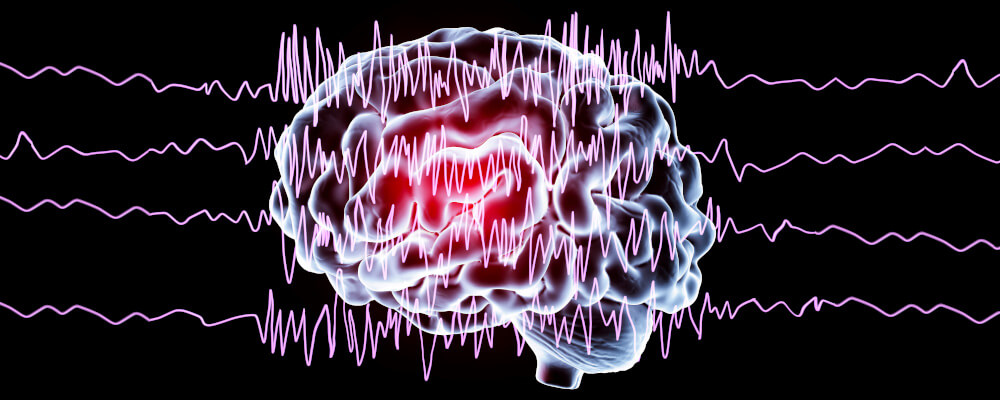Is Epilepsy Genetic? A Closer Look at What’s in Your DNA
October 24, 2023 | Brain and Spine Specialists

Epilepsy is not an uncommon condition, with one out of every 26 individuals being affected. As the fourth most common neurological disorder, its causes have been the subject of extensive research and discussion.
Among the many questions that arise, the genetic underpinnings of epilepsy are particularly intriguing. This exploration will guide us through the intricate relationship between epilepsy and genetics, informed by cutting-edge research and expert insights from the field of neurology.
Understanding Epilepsy
What is Epilepsy?
Epilepsy is a neurological condition characterized by disruptions in nerve activity in the brain. These disruptions can lead to seizures, changes in behavior, or even a loss of awareness. This disorder is not partial to any specific age group, gender, race, or ethnicity.
The symptoms can vary greatly. While dramatic seizures causing total loss of body control are rare, subtler signs like temporary confusion, jerking limb movements, or even staring spells are common. Furthermore, as age advances, the risk of seizures and diseases like Alzheimer’s increase.
The Genetic Connection to Epilepsy
Exploring the Genetic Link
The core question on many minds is what percentage of epilepsy is genetic. While there isn’t a definitive answer, several patients exhibit a genetic predisposition for epilepsy. This means that genetic causes of epilepsy do exist. Some individuals may inherit genes that make them more susceptible to the triggers of epilepsy.
Idiopathic Epilepsy: An Unsolved Puzzle
Interestingly, there are types of epilepsy that seem to have no apparent cause, termed as ‘idiopathic epilepsy’. This condition is often thought to be related to a genetic predisposition. But the exact genetic markers or reasons remain a subject of intense research.
Epilepsy By the Numbers
Epilepsy is more prevalent than many realize, with statistics indicating that one in 26 people will be affected by the condition in their lifetime. This makes epilepsy far from a “rare disease”. However, within the broad spectrum of epilepsy disorders, there are indeed specific types that are considered rare, affecting a smaller segment of the population.
Gender differences in epilepsy have also piqued the interest of many. While it’s a common query to wonder whether epilepsy is more prevalent in males or females, the current scientific landscape doesn’t provide a definitive answer. Research in this area is ongoing, as scientists continue to delve deeper into the interplay of gender and epilepsy.
Factors Leading to Epilepsy
While the genetic component of epilepsy is significant, it’s essential to understand that not everyone with the genes will develop it. Some individuals are born with a higher predisposition due to their DNA, but not necessarily born with epilepsy.
Head trauma, prenatal injuries, and certain diseases like meningitis can also lead to epilepsy. Additionally, other factors like brain tumors or strokes can cause the onset of this neurological disorder.
Diagnosis and Treatment
Epilepsy diagnosis is comprehensive. Neurologists often employ advanced techniques like electromyography (EMG) and electroencephalography (EEG) to monitor electrical activity. These tests help identify abnormalities, classify seizures, and pave the way for effective treatment.
While epilepsy might not have a cure yet, there’s hope for those who suffer from it. Custom treatment plans, informed by these diagnostic tools, can significantly reduce or even prevent seizures. These can range from anti-seizure medication, nerve stimulation, deep brain stimulation, to dietary changes. In extreme cases, surgery can also be an option, especially for those with treatment-resistant epilepsy.
The Aging Process and Epilepsy
Many wonder if epilepsy’s severity increases with age. As individuals grow older, they may experience changes in the frequency and intensity of seizures. Aging also brings about other health concerns that could potentially intersect with epilepsy. Understanding this dynamic between epilepsy and aging is vital for both patients and caregivers.
Charting a Path Forward with Brain & Spine
In the intricate landscape of epilepsy and its genetic connections, understanding is just the beginning. We’re not just dedicated to raising awareness, but also to providing tailored solutions for those affected.
With state-of-the-art diagnostic tools and a team of expert neurologists, we’re equipped to dive deep into each individual’s condition. From custom treatment plans to ongoing support, our mission is to enhance the quality of life for every patient. Trust in our expertise to guide you through your epilepsy journey, anchored in cutting-edge science and compassionate care.
Categories:
